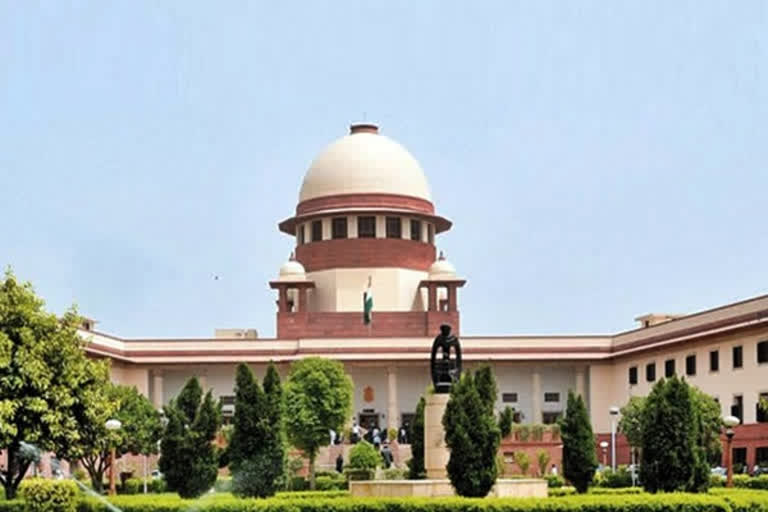New Delhi: In a major setback to Prime Minister Narendra Modi’s legislative reform agenda, India’s apex court Tuesday stayed the operation of three agriculture laws passed by the Modi government in September last year. The Supreme Court also formed a committee of farm experts and farmer leaders to look into the grievances of farmers to decide its next course of action.
The Supreme Court’s decision comes as a big setback for Prime Minister Narendra Modi as, despite strong protests from farmers of Punjab and Haryana, the government had refused to budge.
In fact, Prime Minister Narendra Modi himself led the charge from the front after his agriculture minister Narendra Singh Tomar, senior BJP leader and defence minister Rajnath Singh, and other cabinet ministers failed to persuade the farmers to end their agitation as they congregated at Delhi’s borders.
In an event to mark the transfer of Rs 18,000 crore to farmers' accounts under PM Kisan Samman Nidhi scheme, Prime Minister Modi last month assured them they could sell their produce anywhere including the existing Mandi system.
The Prime Minister blamed opposition parties for pushing their political agenda by creating a myth around the new farm laws.
"No Mandi will be closed, don't believe in rumours," he had said.
However, it failed to cut the ice with farmers, particularly farmers from Punjab and Haryana as these two state account for the lion’s share in the public procurement of wheat and rice at the government fixed price (MSP).
Reforms by stealth will not work: Bhanumurthy
While admitting the need for agricultural reforms, experts believe that these three farm laws were hastily implemented by the Modi government and the old system cannot be completely done away with without consulting other stakeholders, including states.
“Current agricultural reforms is a classic example where all of us expected that there was a need for agricultural reforms but what is important is that one cannot completely do away with the old system,” said NR Bhanumurthy, a top economist and vice-chancellor of Bengaluru based BASE University.
Professor Bhanumurthy, who closely tracks public finances and macro-economic policies, says we need stability in future.
“Reforming through stability is something we need to keep in mind,” Professor Bhnaumurthy told ETV Bharat.
Recounting the experience of demonetisation in November 2016, and implementation of a nationwide common goods and services tax (GST) in July 2017, Bhanumurthy emphasises on the need to transparently consult other stakeholders and support the affected groups.
“I think reforming by learning is important. You cannot go on reforming by stealth. This is something one needs to avoid,” he told ETV Bharat.
This is not the first instance when the top court has either stayed or struck down a law passed by the Modi government.
In October 2015, a bench of Supreme Court struck down the National Judicial Appointments Commission (NJAC) Act by a majority decision. It was seen as a major legislative setback for Prime Minister Modi’s vision to reform the process of appointment of judges in higher judiciary.
Despite a strong protest by opposition parties, the NDA government pushed through the three farm bills in the Rajya Sabha where it lacked a clear majority unlike the Lok Sabha.
These are: (1) the Farmers' Produce Trade and Commerce (Promotion and Facilitation) Act, 2020 (2) the Farmers (Empowerment and Protection) Agreement on Price Assurance and Farm Services Act, 2020, and (3) the Essential Commodities (Amendment) Act, 2020.
These bills allow farmers greater freedom in the marketing of their produce and also allow them to enter into contract with companies by laying down the ground rules for such agreements.
However, farmers of India’s grain-producing states, Punjab and Haryana strongly opposed these laws saying that they will dismantle the government procurement at fixed price - the minimum support price (MSP).
Consult states on farm laws: Santosh Mehrotra
Professor Santosh Mehrotra, a Delhi based development economist also criticises the government for hastily implementing these farm laws.
Mehrotra says in a diverse country like India which have several different agricultural zones and a variety of crops, a straight-jacket law will not work.
“The government will have to amend these laws otherwise protests will not end,” he told ETV Bharat.
Read: SC decision on farm laws shows Modi govt's failure: Yechury



